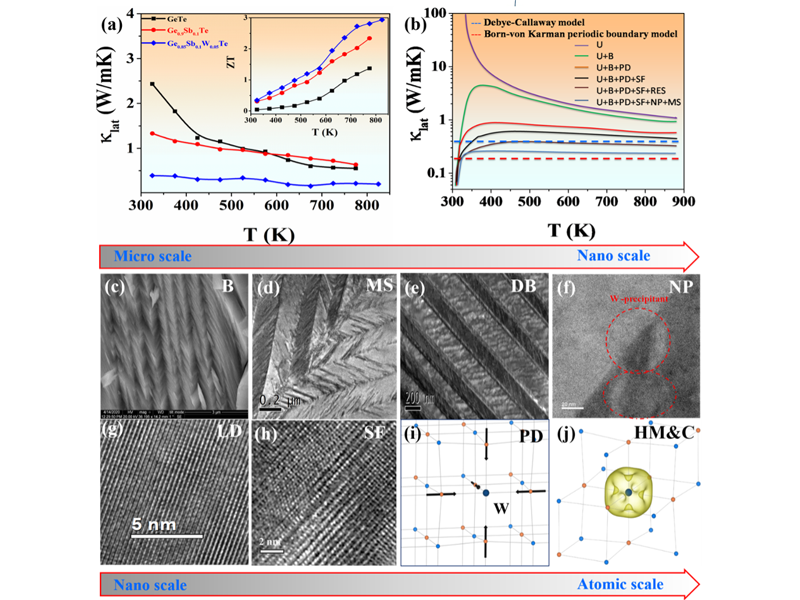Ultra-low lattice thermal conductivity driven high thermoelectric figure of merit in Sb/W co-doped GeTe
Dr. Raman Sankar and his group, in collaboration with Prof. Mei-Yin Chou and Prof. Kuei-Hsien Chen at Institute of Atomic and Molecular Sciences, Academia Sinica investigated the thermoelectric performance of Sb/W co-doped GeTe and published an article in Journal of Materials Chemistry A (RSC Publishing Group) with an impact factor of 10.7. High thermoelectric performance is a material challenge associated mainly with the manipulation of lattice dynamics to obtain extrinsic phonon transport routes, which can make the lattice thermal conductivity (κlat) intrinsically low by introducing multiple scattering mechanisms. Present study shows that the lattice-strain-induced phonon scattering resulting from microstructural distortions in GeTe-based compound can enable ultralow lattice thermal conductivity. The unusual lattice shrinkage, W interstitials, W nanoprecipitates, and heavy elemental mass, in Ge0.85Sb0.1W0.05Te is culminating in an ultralow lattice thermal conductivity of ~ 0.2 W/mK at 825 K. Microstructural distortions in this Sb/W co-doped GeTe are found to be primarily associated with shorter W–Te bonding owing to the anomalous effect of the higher electronegativity of the W atoms. Furthermore, the increased electrical conductivity (σ) resulting from the enhanced vacancy formation produced by W doping and W interstitials synergistically contribute to optimization of the thermoelectric performance (ZT) to ~ 2.93 at 825 K. The thermoelectric efficiency as high as ~17% has been obtained for a single leg in this composition at an operating temperature of 825 K, with an estimated device ZT value of ~1.38.

Journal Links: https://pubs.rsc.org/en/content/articlehtml/2024/ta/d4ta05332j